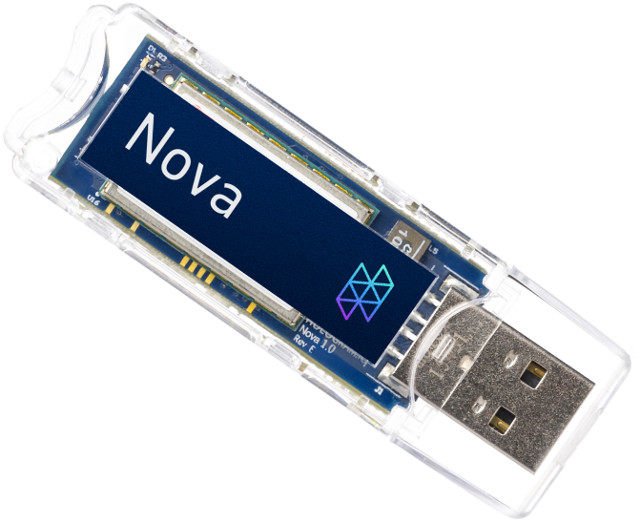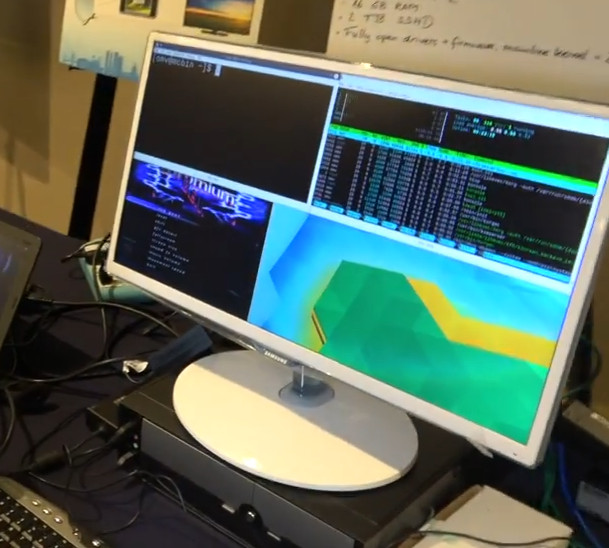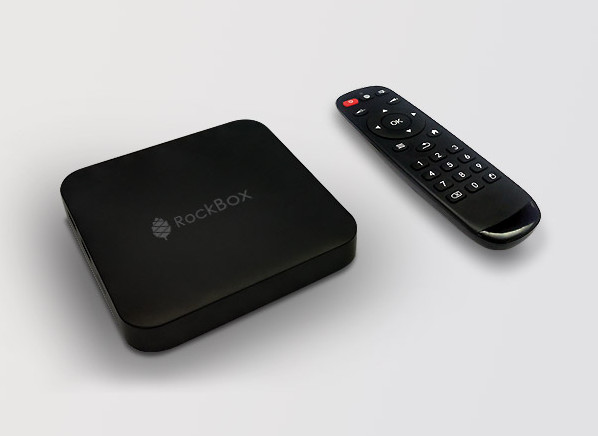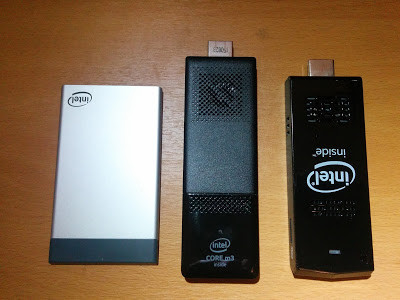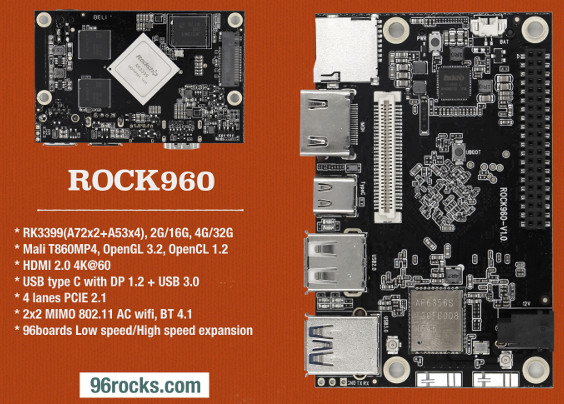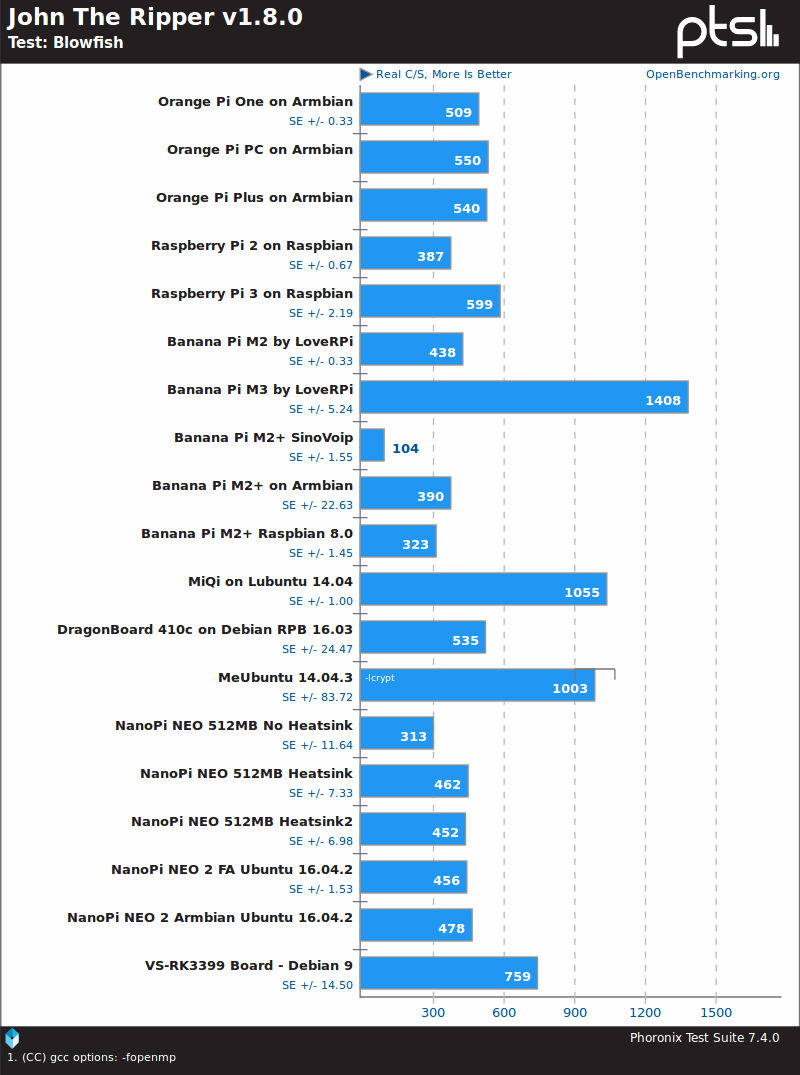This summer I discovered Hologram global cellular IoT SIM card, and since they provided free developer samples with 2MB of monthly data includes, I decided to get one to try it out. I received it a few weeks later, and to my surprise it worked, despite my country of residence having some strict requirements with regards to SIM card registration. The SIM card uses roaming, but with a low fixed worldwide pricing, and does not come with a phone number by default, so maybe that’s why I did not have to register. The company is now back with Nova, an open source hardware cellular modem certified by OSHWA (ID #US000077). It’s basically 2G/3G USB dongle that’s controlled by Hologram Python SDK, specifically suited to Debian systems like Raspberry Pi 3 or BeagleBone Black. Hackster.io is also involved in the launch with a worldwide contest offering 200 free kits comprised of […]
Google Adds Home Mini and Home Max to its Google Assistant Family
As we’ve just discussed in our post about Pixel 2 / Pixel 2 smartphones, Google had a hardware day yesterday, where they made announcements about various devices with new smartphones, Pixel Buds earbuds optimized for Google Assistant, Pixelbook chromebook, and so on. Google Home family has also been extended with two new models: Home Mini with a much smaller device and a lower price, as well as Home Max with premium speakers. Google Home Mini Specifications: Speaker – 360 sound with 40mm driver Microphones – “Far-field voice recognition supports hands-free use” Audio formats – HE-AAC, LC-AAC+, MP3, Vorbis, WAV (LPCM), FLAC Connectivity – Dual band 802.11 b/g/n/ac WiFi, Bluetooth USB – 1x micro USB port for power Misc – Play/Pause/Talk button, volume buttons, LEDs, microphone on/off switch Power Supply – 5V/1.8A Dimensions – 98 mm ∅ x 42 mm (h) Weight – 173 grams (device only) Home Mini is compatible with […]
MACCHIATOBin based DIY ARM Desktop, DragonBoard 820c based DIY ARM Laptop (Video)
2017 may be the year of the (ARM based) Linux desktop, sort of. We’ve already seen GIGABYTE ARM development PC powered by a Socionext SC2A11 Synquacer 24-core ARM Cortex A53 processor that will be available in December, and apparently working fairly well already. But there are even more options, as Bernhard Rosenkränzer (Bero) from the Linaro Mobile Group, and unofficial Linaro superstar, has decided to create his own ARM based desktop and laptop, based on respectively MACCHIATOBin board with a Marvell ARMADA 8040 quad core Cortex A72 processor, and DragonBoard 820c board with a Qualcomm Snapdragon 820 quad core Krait processor. Since MACCHIATOBin board complies with mini-ITX form factor, he could simply use off the shelf parts with a standard desktop case with power supply, NVIDIA or AMD Radeon graphics card, 16GB memory modules, and a 2 TB SSD drive. The AMD Radeon card fried due to overheating, so the […]
Popcorn Hour RockBox Basic TV Box To Leverage ROCK64 Board Firmware Images
Pine64 launched ROCK64 development board powered by Rockchip RK3328 processor a few months ago. The board exposes fast interfaces like Gigabit Ethernet and USB 3.0, and support 4K video playback, and runs Android 7.1 or various Linux distributions such as Ubuntu 16.04 and others. Pine64 and Cloud Media companies share some of the same owners, and RK3328 being a TV box processor, it should not come as a surprise that Cloud Media has introduced Popcorn Hour Rockbox Basic TV box based on the processor. While the box is running Android 7.1 by default, it will also be support alternative operating systems such as LibreELEC, Android TV OS, Ubuntu, etc… thanks to the work of Pine64/Rock64 community. Popcorn Hour RockBox Basic specifications are quite standard: SoC – Rockchip RK3328 quad core Cortex A53 processor @ 1.5 GHz with Mali-450MP2 GPU System Memory – 1 GB LPDDR3 Storage – 8 GB eMMC […]
Intel Compute Card and Dock Hands On, Windows 10 and Ubuntu Benchmarks
We’ve recently seen Intel introduced Dock DK132EPJ for their Compute Cards, and released some pricing info. Ian Morrison (Linuxium) got sent a full kit by Intel with the dock and Compute Card CD1M3128MK powered by a dual core / quad Core m3-7Y30 processor with 4GB RAM, 128GB PCIe SSD, and Intel Wireless-AC 8265 module. You can get the full details in Ian’s post, but I’ll provide a summary of the key points here. While the compute card and dock are thinner than most product, the computer card is quite wider than TV sticks, and the dock larger than an Intel NUC. It also comes with a fan, and cooling works well with maximum CPU temperature under being 70°C. The Compute Cards do not come with any operating system, but you get to the BIOS easily, and install Windows or Linux distributions. Ian’s started with Windows 10 Enterprise Evaluation, and ran […]
Nokia 3310 3G Dumb Phone Works with 2G & 3G Networks
Many people use smartphones now, but “dumb” feature phones are still being sold, as they are cheaper, some may find smartphones too complicated to use, while others wary about privacy issues. However, most feature phones comes with 2G connectivity, and with 2G sunset in many countries, I’ve recently realized it’s not so easy to find a simple phone with 3G cellular connectivity. The good news is that Nokia 3310 3G has just been announced by HMD global. Nokia 3310 3G specifications: SoC – TBD System Memory – TBD Storage – 64 MB storage; MicroSD card slot supporting up 32GB Display – 2.4” QVGA (320×240) color display Keyboard – “beautiful push buttons and iconic, shaped design” Camera – 2MP camera with LED flash Audio – Headphone jack Cellular Connectivity 2G/ 3G connectivity: dual band 900/1800 MHz +3G Band 1 and 8 (Single SIM) quad band GSM 850/900/1800/1900 + 3G Band 1, […]
Rock960 Board is a 96Boards Compliant Board Powered by Rockchip RK3399 SoC
So it looks like Rockchip is soon going to join 96Boards family with Rock960 board. Developed by a Guangzhou based startup called Varms, the board will be powered by Rockchip RK3399 hexa-core SoC, and comply with 96Boards CE specifications. Rock960 board preliminary specifications: SoC – Rochchip RK3399 hexa-core big.LITTLE processor with two ARM Cortex A72 cores up to 1.8/2.0 GHz, four Cortex A53 cores @ 1.4 GHz, and ARM Mali-T860 MP4 GPU with OpenGL ES 1.1 to 3.2 support, OpenVG1.1, OpenCL 1.2 and DX 11 support System Memory – 2 or 4GB RAM Storage – 16 or 32GB eMMC flash + micro SD card Video Output – 1x HDMI 2.0 up to 4K@60 Hz with CEC and HDCP Connectivity – WiFi 802.11ac 2×2 MIMO up to 867 Mbps, and Bluetooth 4.1 LE (AP6356S module) with two on-board antennas, two u.FL antenna connectors USB – 1x USB 2.0 host port, 1x […]
Mecool VS-RK3399 Board Linux Benchmarks
I’ve just showed how to install Debian, and build a Linux image from source on VS-RD-RK3399 board (aka Mecool VS-RK3399) last week-end, but at the time I did not run any benchmarks on the board. We already have plenty of benchmarks for Rockchip RK3399 in Android, so instead I started by installing the latest Phoronix Test Suite in Debian:
|
1 2 3 |
sudo apt install php-cli php-gd php-xml php-zip wget http://phoronix-test-suite.com/releases/repo/pts.debian/files/phoronix-test-suite_7.4.0_all.deb sudo dpkg -i phoronix-test-suite_7.4.0_all.deb |
… and ran the tests I did on NanoPi NEO 2 earlier:
|
1 |
phoronix-test-suite benchmark 1704029-RI-1704017RI65 |
For whatever reasons OpenSSL and Mafft failed to download, but we still have the other benchmarks to compare with. Note that the Debian image is likely not optimized, and while the system runs an Aarch64 kernel, the rootfs is only 32-bit, which may have affected some of the benchmarks.
|
1 2 3 4 5 |
linaro@linaro-alip:~$ file /bin/ls /bin/ls: ELF 32-bit LSB shared object, ARM, EABI5 version 1 (SYSV), dynamically linked, interpreter /lib/ld-linux-armhf.so.3, for GNU/Linux 3.2.0, BuildID[sha1]=f10ece941515bd40f6aa48dd28ba481c8a17cace, stripped linaro@linaro-alip:~$ uname -a Linux linaro-alip 4.4.55 #474 SMP Tue Sep 5 09:09:33 CST 2017 aarch64 GNU/Linux linaro@linaro-alip:~$ |
But let’s see what’s we’ve got, starting with John the Ripper password cracker, a multi-threaded benchmark. We’d normally expect hardware platforms based on Rockchip RK3399 SoC to […]


